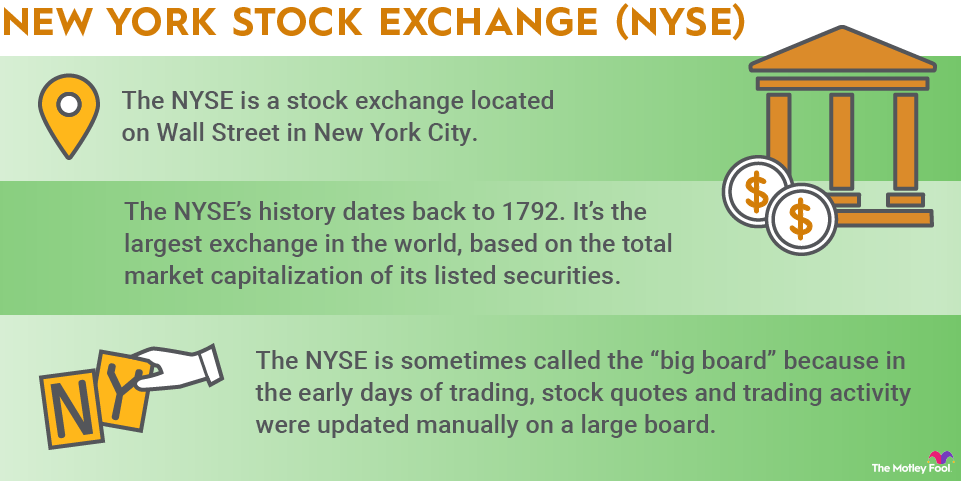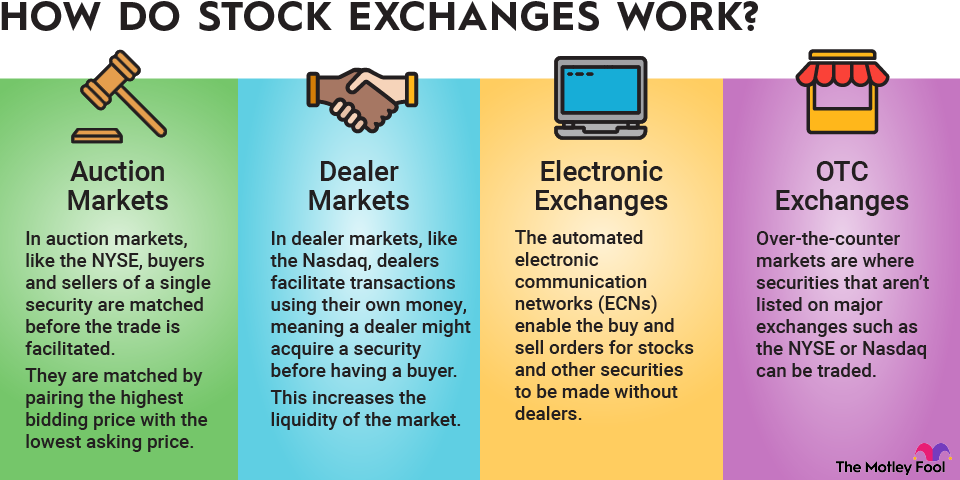Important international stock exchanges
In addition to the NYSE and Nasdaq exchanges in the U.S., there's a network of stock exchanges across the globe. They include the Tokyo Stock Exchange in Japan, the Shanghai Stock Exchange in China, the U.K.'s London Stock Exchange, and the Euronext exchange, which serves the European Union.
Companies often choose to list primarily in the country in which they're located, so international stock exchanges can give investors access to companies around the world. However, some companies choose to list their shares on more than one exchange. This practice, known as dual listing, allows investors across the globe direct access to the stock of those companies. In some cases, it also makes it possible to buy and sell their shares around the clock.
Put stock exchanges to good use
You might never visit a stock exchange, but if you buy and sell stocks, exchanges play a vital role in letting you invest. Without these exchanges, it'd be far more difficult to find someone willing to take the other side of your stock trade.




